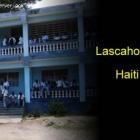ADVERTISEMENT
Mental Health - Haiti Observer Blog
Mental Health, Haiti Observer Blog. Read the following articles about Mental Health
Cost Accounting System to Improve Healthcare in Rural Haiti
A good method of Cost accounting helps to identify possible inefficiencies and areas of necessary improvement.
A few years ago, a Boston based non-profit healthcare organization 'Partners In Health', worked in the health care system in Haiti and submitted a report on "Building Surgical Systems in Haiti". The report highlights that the 2010 earthquake resulted in thousands of donors, philanthropists, and international organizations coming to Haiti to offer services. For months they worked to save lives and ease suffering. What they did not do, however, was to contribute to strengthening Haiti's public health system while the main challenge to improve this sector was nothing but to getting doctors and care giver's commitment and involvement into the essence of the system.
Haitian Government must invest more in Mental Health Services
An effect of Haiti's 2010 earthquake has been to bring the discussion of mental health out into the open and work to disabuse Haitians of the notion mental health has something to do with being crazy. What they fail to understand is their feelings of loss, grief, survivor guilt, and fear are normal and need tending to in order to heal.
Nearly five years later hundreds of thousands of earthquake survivors remain living in tent cities, suffering severe emotional and psychological trauma. In addition they are dealing with overcrowding, squalor, risks of being sexually assaulted, gang activity, and no police protection.
First Lady Dedicated to Social Advocacy for Mental Health Issues
First Lady Sophia Martelly's advocacy for the poor began at the age of 18. It was on Christmas Day she volunteered to deliver dinners to the hungry. It was this shared compassion for Haiti's poor that brought her and husband, President Martelly, together. Since gaining the spotlight, the Martelly's have built a reputation for becoming involved in programs and causes pertaining to the neediest on the island.
The First Lady has her own office out of which she operates at the National Palace. She is a natural in her role as social advocate, overseeing projects and heading committees for many charitable causes.
Mental Health Services in Haiti
The majority of the Haitians live in psychological fragile state. They have been dealing with elevated chronic life stress for many years where the basics of daily life do not come easily.
The everyday lives of common Haitians pass in abject poverty which takes toll on their nature and psychological functioning. As per recent U.N report, 55% of the population lives with less than $1.25 per day and 58% of them are undernourished. The massive earthquake of 2010 has cracked in the psychic structures for those vulnerable to mental illness and aggravated the suffering of many others with invisible wounds. It has taken away the ability to function effectively as possible.
Francisco Rene asked for forgiveness
In a surprise move, Metre Francisco Rene, the former Government Commissioner of Port-au-Prince, publicly apologized to anyone he offended during his time as head of the Prosecutor of Port -au-Prince.
Who would ever believe that? Francisco Rene has decided to publicly make an apology for his behavior for the time he was the Commissioner of Port-au-Prince. It is unfortunate that in Haiti, we do not address the issue of mental illness seriously. In Haiti, someone can have any major mental illness like Bipolar disorder, Schizoaffective disorder disorder or any other personality disorder; however, as long as he/she is not throwing stones in the street, is not considered ill.
Helping Kids Cope with Trauma
There is no doubt that children who face natural disasters directly, go through an emotional trauma but those who are far away are also affected because of the wide media coverage and they too suffer emotionally and psychologically. There are some psychological techniques that can be used by help these youngsters throughout the world to cope with the trauma. Here are some of the methods:
• Music: Taking popular music and creating new positive lyrics for them can help. Positive lyrics can help to give a happier state and help kids by motivating them. Children can sing among themselves and boost up their confidence. However, if kids are less verbal, they can use drumming as energy or frustration releasing medium.
• Technology: Teach kids how to use the power of internet to get information on good health and coping with trauma instead of looking for horrible news.
• Physical activities: Trauma is not just mental. It is physical too in form of tensed muscles and clenched teeth. A nice relaxing bubble bath, exercise, yoga, playing, riding etc. can help to release the tension.
• Art: Children express better through their drawings instead of verbal expression. Drawing the traumatic experience on one side of the page and a happy incident on the other side help them to get over their trauma.
• Friends: Talking to friends can help kids because after a traumatic incident children generally fail to talk to their parents. Sharing with friends always help.
• Role-play: Asking children to take actions that should normally be taken in case of an emergency help to tone their muscle memory. So, their actions become more automatic under a real emergency situation. Role-play with friends is more effective.
• Gifts for survivors: Simple gifts for peer-survivors after a tragic incident helps to boost self-esteem. Even simple teddy bears or paper cranes with messages of hope and love can help kids to get out of trauma relatively quickly.
Psychological-Trauma Training Culturally Sensitive to Quake Survivors
Haiti's 7.0 magnitude earthquake, which jolted the country in 2010, left a trail of devastation. Thousands were killed by caved-in structures, and thousands more, maimed and bleeding, lay in the streets. Disaster-aid organizations like Doctors Without Borders performed emergency surgeries. Many hundreds of Haitians in Port-au-Prince fled, escaping images of destruction that were everywhere.
Of those who stayed, they lived in tent communities on the streets, dependent on international aid for food, water, and clothing. But immediate needs for medical attention were not all they had to contend with. The trauma of the earthquake's terrifying power, and its panic-producing aftershocks overwhelmed survivors' psyches and their ability to cope. The psychic damage commonly associated with the Haiti earthquake is known as post-traumatic stress disorder (PTSD).
What happens when someone has no Fear
Despite fear being universal in all human beings, some individuals could actually lack the sense of fear in a given situation.
Yes, fear is beneficial in identifying danger and preparing for it, but what if one does not feel fear despite the danger?
The absence of fear is characterized by one's neglect of any risks that could happen when faced with a dangerous situation. This is solely situational of course, depending on the individual and the factors at hand. When it comes to motherly instinct in animals for example, a mother fearlessly fights off a predator much bigger and stronger than she is when the life of her offspring is threatened. This is also the case for human beings when children are involved.
What we pay for our Fears
They steal, rape, kidnap, and kill their way into many people's fears. Aside from these threatening uninvited visitors, the ordinary household could turn into a danger zone because of the simplest of objects and areas. Knives, loose electric wires, flights of stairs, and even a banana peel could prove to be very fatal.
Fear dominates the existence of the human race. That is why some businesses try to make money out of it. Billions of dollars are spent on products and services that supposedly ensure the safety and well-being of an individual. This is what people pay for the sake making their fears come true, but to what extent?
Anti-Social Personality Disorder Signs
If parents, teachers, and the community recognize the signs of an anti-social personality disorder appearing in a youth, they can take steps to get help for the individual. Here are twelve common signs to watch out for.
1. They exhibit cruel treatment towards people and pets. Repeatedly harm, threaten, and physically abuse them.
2. They frequently provoke physical altercations.
3. They use harmful or deadly weapons, for example, a baseball bat, rock, razor, knife or firearm.
4. They steal from people directly, for example, pick pocketing, cell phone theft, hold-ups for cash or credit cards.
Our objective is to share with you news and information about Haiti and the people of Haiti. Traditions, habits and the way we were or grew are alive in this site. We highly recommend that you Subscribe to our Newsletter and also share with us some of the things that are memorable and made us unique people.

 Haitian Creole Translation
Haitian Creole Translation  Lascahobas, Haiti
Lascahobas, Haiti  Life After Death
Life After Death  Marmelade, Haiti
Marmelade, Haiti  Haiti tech Summit
Haiti tech Summit